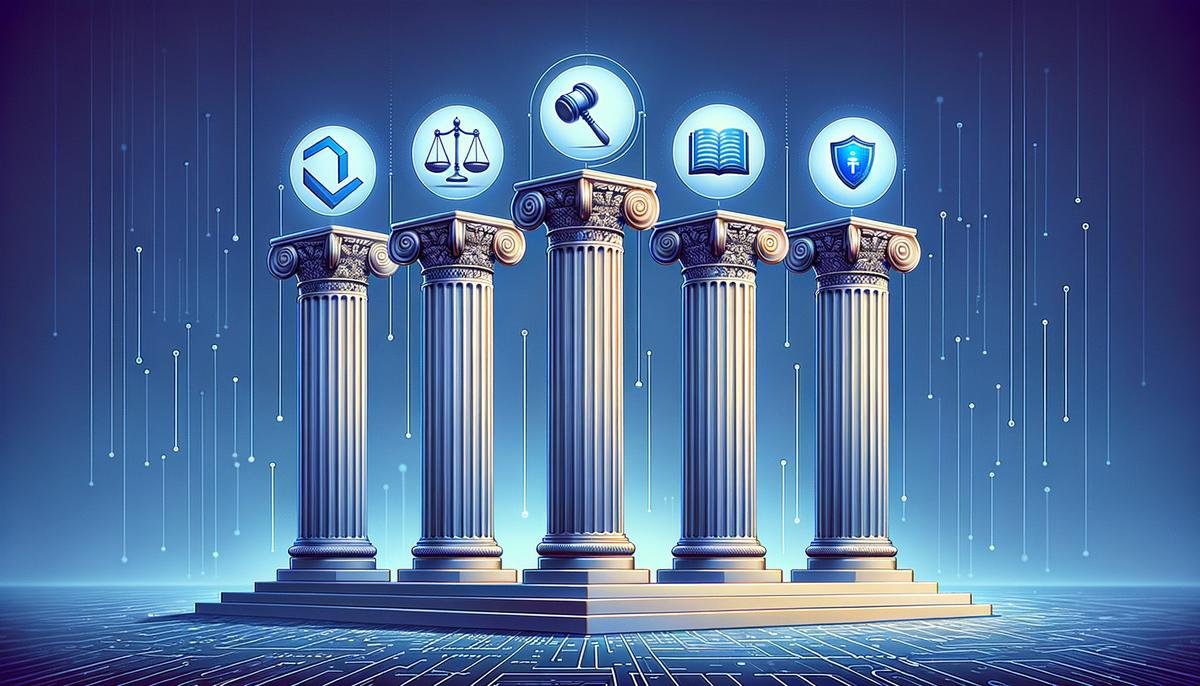Understanding AI Ethics
AI ethics guide the development and use of artificial intelligence, ensuring fairness and addressing issues like bias, privacy, and safety. Bias is a significant challenge, as AI can inherit human prejudices. Transparency is crucial for fostering trust in AI systems. Accountability sets clear expectations for AI and its creators. Privacy protection is vital as AI consumes data rapidly. Safety measures prevent AI from causing unintended harm.
These ethical guidelines aim to make AI a reliable tool rather than an unpredictable force. As AI's potential and risks evolve, these ethics provide direction for future innovation.

Algorithmic Bias and Fairness
Algorithmic bias occurs when AI systems produce unfair or discriminatory results, often stemming from biased training data. This can lead to real-life discrimination against marginalized communities.
To ensure fairness, strategies include:
- Diversifying data sets to better represent target populations
- Regular assessments of AI systems to identify and correct bias
- Integrating fairness as a core principle in AI design
- Collaboration among tech experts, ethicists, and society
By incorporating fairness into AI development and monitoring for bias, we can create more equitable AI tools that benefit all users.

AI Governance and Regulation
AI governance requires international cooperation to create harmonized regulations for ethical AI deployment. Adaptive regulatory measures are key, adjusting to match AI's evolving capabilities.
Important aspects of AI governance include:
- Ongoing international dialogue among policymakers, industry innovators, and tech experts
- Accountability for AI developers
- Consistent and comprehensive guidelines
- Balancing progress with responsible development
Careful coordination is crucial to ensure AI flourishes under appropriate regulatory frameworks.
Privacy and Surveillance Concerns
As AI collects data rapidly, balancing benefits with personal privacy is crucial. Strong data governance frameworks are needed to ensure AI respects personal boundaries.
Key considerations include:
- Transparency about data collection and usage
- Establishing strong privacy rights
- Allowing individuals to control, limit, or delete personal data
- Prioritizing ethical considerations in AI design
By addressing these concerns, we can create a future where AI enhances our lives while respecting individual privacy.

The Role of Human Judgment in AI
Human judgment plays a crucial role in guiding AI development and decision-making. While AI processes information efficiently, it lacks the inherent wisdom, empathy, and nuanced thinking that characterize human decisions.
Key aspects of human judgment in AI include:
- Navigating ethical challenges
- Applying empathy and compassion
- Fostering creativity and innovation
- Weighing moral implications
By combining AI's computational power with human judgment, we can create a balanced approach where technology serves our needs while respecting our values.

Future Challenges and Opportunities
The future of AI presents both challenges and opportunities. Artificial General Intelligence (AGI) holds promise but also raises concerns about job displacement.
Key areas of focus include:
- Workforce adaptation and rethinking economic models
- AI's potential to improve healthcare and education
- Using AI to address global issues like climate change
- Ensuring equitable access to AI benefits
Moving forward requires balancing ambition and innovation with strong ethical principles to create a future where human and artificial intelligence work together harmoniously.
As AI continues to evolve, the focus remains on ethically integrating it into our lives. Balancing innovation with responsibility is essential to ensure that technology serves humanity's best interests while aligning with our shared values.
- IDC. Worldwide spending on artificial intelligence forecast to double in four years. IDC Press Release. 2020.
- Sandel MJ. The Ethical Implications of AI. Harvard Magazine. 2019.
- Biden J. Executive Order on the Safe, Secure, and Trustworthy Development and Use of Artificial Intelligence. The White House. 2023.
- Acemoglu D, Autor D, Johnson S. Artificial Intelligence and Inequality. MIT Economics. 2023.
- Hoyos A. The Future of AI: Trends and Opportunities. IE University. 2023.




